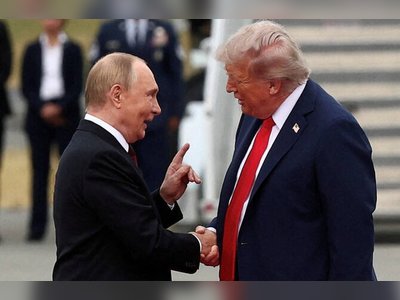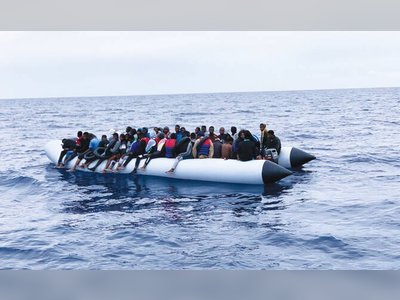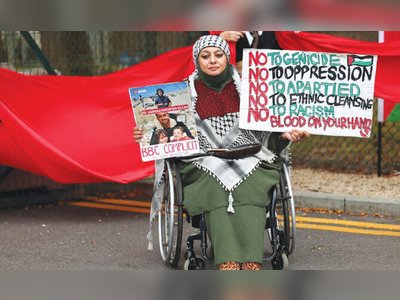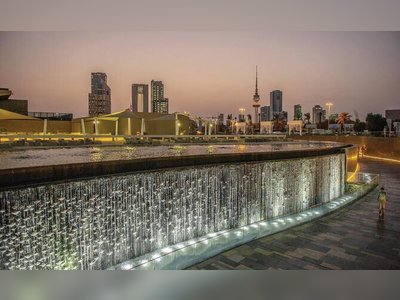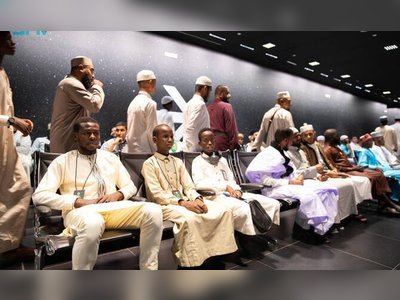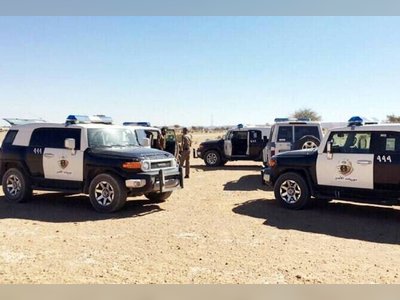
Exhausted Ukrainians Fear Unjust Peace as Alaska Talks Loom
As the possibility of peace talks between Donald Trump and Vladimir Putin looms, Ukrainian soldiers fear that an unjust resolution may be on the horizon.
KYIV – The term "dronocide" has become a common phrase among Ukrainian soldiers, referring to their training aimed at countering the increasing threat posed by drones on the battlefield.
According to Ukraine, these machines now pose the greatest danger to soldiers' lives, causing the largest number of casualties.
As President Trump and Putin prepare to meet in Alaska to discuss Ukraine's future, concerns grow that an unjust peace may be imposed without Ukrainian representation.
The ongoing training suggests a lack of confidence in a swift end to the war.
Soldiers undergo drills using shotguns to target fast-moving drones, with Ihor, their experienced instructor, emphasizing the effectiveness of this method at close range.
Ihor, also known as "The Knifer," has been fighting since 2014, when Russia annexed Crimea and sent troops into the Donbas region.
He and his comrades are resistant to the idea of ceding territory in exchange for peace, stating that they prefer to continue fighting until they can reclaim their lands.
Despite being significantly outnumbered and outgunned, Ukrainian forces remain resolute.
Some units are now below full strength, with one soldier describing recent mobilization efforts as a "disaster." The troops admit to feeling fatigued but maintain a determination to keep fighting.
Oleksii, a soldier training with a shotgun, has already lost his father and friends in the war, yet he remains opposed to the idea of ceding territory to Russia.
The toll of the conflict extends beyond the front lines, affecting civilians as well.
Last month, Russia launched over 6,000 drones against Ukraine, while July saw just over 400 such attacks.
The capital city, Kyiv, is filled with citizens demanding an end to the war, aware that further fighting will result in greater territorial losses and casualties.
Some citizens express skepticism about the upcoming talks, believing that Ukraine may be forced to cede land for a ceasefire.
President Zelensky has voiced frustration over Ukraine's lack of representation at the Alaska meeting and his refusal to surrender Ukrainian territory.
Recent polls suggest growing acceptance among Ukrainians that territorial concessions may be necessary for peace.
However, many doubt Russia's willingness to genuinely pursue peace.
Oleksandr Merezhko, an MP and Chairman of Ukraine's Foreign Affairs Committee, dismisses the Alaska talks as a public relations stunt, stating that Putin has no desire to reach a compromise.
The human cost of the conflict is staggering, with over 13,000 civilian deaths and 3.5 million displaced individuals, including those now residing in temporary housing near Kyiv.
Many have lost their homes, families, or both, leaving them skeptical about the prospects for peace.
While some Ukrainians hold onto hope for a resolution, others remain defiant in their refusal to cede territory, believing that it is not only unjust but also immoral and unlawful.
In Alaska, President Trump and Putin will discuss Ukraine's future without Ukrainian representation or input.
Despite Ukraine's struggles on the battlefield, they have not yet been defeated, making it challenging for others to impose a peace agreement they cannot accept.
According to Ukraine, these machines now pose the greatest danger to soldiers' lives, causing the largest number of casualties.
As President Trump and Putin prepare to meet in Alaska to discuss Ukraine's future, concerns grow that an unjust peace may be imposed without Ukrainian representation.
The ongoing training suggests a lack of confidence in a swift end to the war.
Soldiers undergo drills using shotguns to target fast-moving drones, with Ihor, their experienced instructor, emphasizing the effectiveness of this method at close range.
Ihor, also known as "The Knifer," has been fighting since 2014, when Russia annexed Crimea and sent troops into the Donbas region.
He and his comrades are resistant to the idea of ceding territory in exchange for peace, stating that they prefer to continue fighting until they can reclaim their lands.
Despite being significantly outnumbered and outgunned, Ukrainian forces remain resolute.
Some units are now below full strength, with one soldier describing recent mobilization efforts as a "disaster." The troops admit to feeling fatigued but maintain a determination to keep fighting.
Oleksii, a soldier training with a shotgun, has already lost his father and friends in the war, yet he remains opposed to the idea of ceding territory to Russia.
The toll of the conflict extends beyond the front lines, affecting civilians as well.
Last month, Russia launched over 6,000 drones against Ukraine, while July saw just over 400 such attacks.
The capital city, Kyiv, is filled with citizens demanding an end to the war, aware that further fighting will result in greater territorial losses and casualties.
Some citizens express skepticism about the upcoming talks, believing that Ukraine may be forced to cede land for a ceasefire.
President Zelensky has voiced frustration over Ukraine's lack of representation at the Alaska meeting and his refusal to surrender Ukrainian territory.
Recent polls suggest growing acceptance among Ukrainians that territorial concessions may be necessary for peace.
However, many doubt Russia's willingness to genuinely pursue peace.
Oleksandr Merezhko, an MP and Chairman of Ukraine's Foreign Affairs Committee, dismisses the Alaska talks as a public relations stunt, stating that Putin has no desire to reach a compromise.
The human cost of the conflict is staggering, with over 13,000 civilian deaths and 3.5 million displaced individuals, including those now residing in temporary housing near Kyiv.
Many have lost their homes, families, or both, leaving them skeptical about the prospects for peace.
While some Ukrainians hold onto hope for a resolution, others remain defiant in their refusal to cede territory, believing that it is not only unjust but also immoral and unlawful.
In Alaska, President Trump and Putin will discuss Ukraine's future without Ukrainian representation or input.
Despite Ukraine's struggles on the battlefield, they have not yet been defeated, making it challenging for others to impose a peace agreement they cannot accept.
